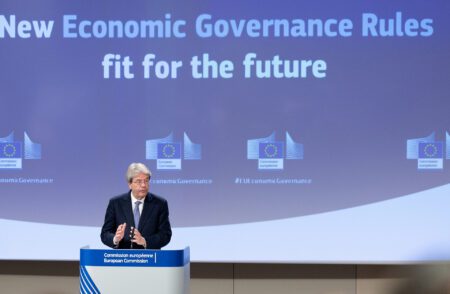The PES welcomes the efforts of European Commissioner for Economy Paolo Gentiloni to move ahead with a progressive update of the EU’s economic governance framework.
The forthcoming legislative process must be the opportunity to guarantee flexibility for public investments. Indispensable measures such as supporting businesses during the pandemic and ensuring affordable energy for all required significant public funding to maintain economic activity and protect livelihoods, which is why the existing fiscal rules were temporarily suspended in March 2020 using the general escape clause, which will expire at the end of 2023.
The new economic governance framework should enable future-oriented investments in the green and digital transitions, the implementation of the European Pillar of Social Rights and the strengthening of our common defence capabilities, while guaranteeing sustainable public finances and democratic ownership of national spending plans. The framework must give governments the means to develop a highly skilled labour force, employed in quality jobs and supported by strong social protection, and prevent any social regression.
PES President Stefan Löfven said:
“The successful transition towards greener and fairer societies, underpinned by economic progress and resilience and strong welfare states, is crucial to the PES. In light of the recent crises, a progressive reform of the EU’s economic governance is urgently needed, to safeguard investments in the green and digital transition, social protection, skills and quality jobs, while strengthening our collective commitment to the sustainable management of public finances.”
As stated in our 2022 Berlin Congress resolution, the PES continues to stand for a permanent long-term EU investment capacity with real European solidarity. We want to build on the proven success of the employment support fund SURE and adapt it to continue supporting millions of European workers and households.
The proposed reform to the EU’s economic governance framework would introduce national medium-term fiscal-structural plans to be drafted by Member States, setting out a realistic path towards debt reduction that includes gradual consolidation, reforms, and investments.



